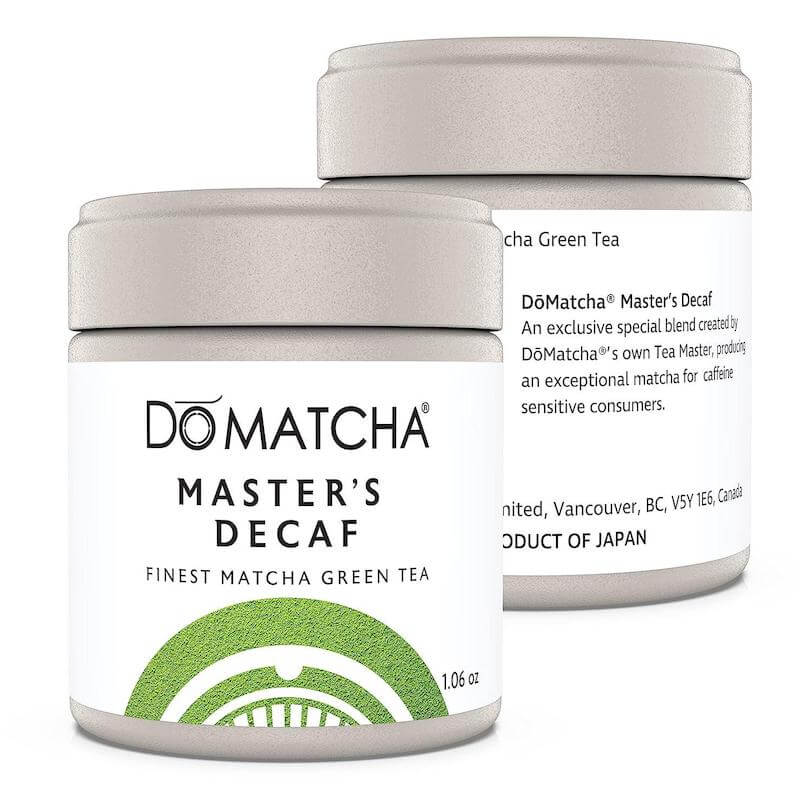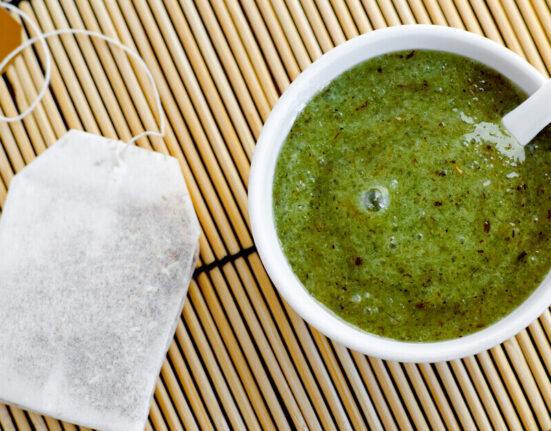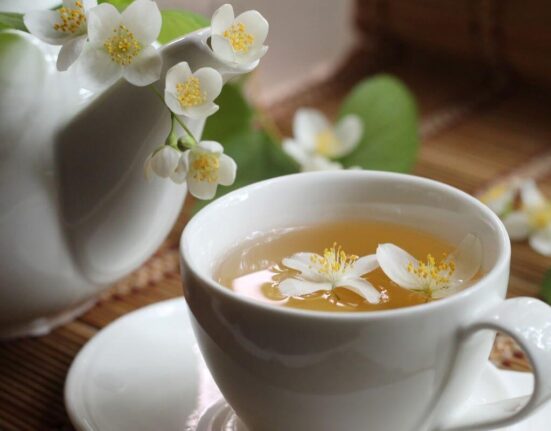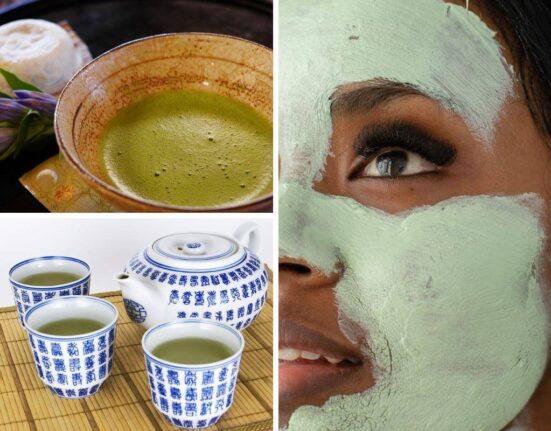When I first started drinking green tea, I was excited about all the potential health benefits. I loved the taste, the warmth, and the ritual of brewing a cup each morning.
However, as time went on, I began to notice that I wasn’t feeling as energized or healthy as I had hoped. It wasn’t until I visited my sister Tamra’s cottage that I realized why.
Tamra had stocked her cupboards with green tea, and since it was the only option available, I drank it every day for the week that I was visiting.
To my surprise, I began to feel more energetic, was getting better sleep, and even felt more nurtured. I wasn’t as thirsty, had better workouts, and didn’t feel tired a few hours after lunch like I usually did. I couldn’t believe how much better I felt!

It wasn’t until the last day of my visit that I noticed something different about the green tea Tamra had bought. It was decaf! That simple change in my routine had brought loads of benefits.
I realized that the caffeine in regular green tea was actually cancelling out the positive effects that I had been hoping for. From that moment on, I made the switch to decaf green tea and never looked back.
Now, I make sure to always have decaf green tea on hand, and I enjoy it just as much as I did before.
I’m grateful to Tamra for unknowingly introducing me to this healthier version of my favorite drink, and I feel better than ever knowing that I’m doing something good for my body with each sip.

If you’re looking for a healthy beverage option that can offer wide-ranging health benefits, green tea is one option worth exploring.
It’s rich in antioxidants which are integral to helping our bodies fight off disease and maintain energy levels – and did you know the health benefits of green tea might even be more pronounced when caffeine is removed?

That’s right – decaffeinated green tea may possess an even greater concentration of these helpful components! While it’s not required to kick your daily cup (or cups) of coffee to enjoy green tea, we have rounded up ten compelling reasons why removing those jitters with caffeine-free varieties is beneficial to the wellbeing of our bodies.
Keep reading on and find out how you can get the most natural health bang for your buck with decaf green tea!
Top 5 adverse effects of caffeine on the body
This is not a complete list by any means, but let’s just start with the top 5 that come to mind:
1. Disrupts Sleep
Caffeine is notorious for keeping us awake, but it can also disrupt sleep patterns. Consuming caffeine too late in the day can lead to difficulty falling asleep or staying asleep throughout the night.

2. Increases Anxiety
In some individuals, caffeine consumption can increase feelings of anxiety and even trigger panic attacks.
This is due to caffeine’s ability to stimulate the nervous system, leading to an increase in heart rate and blood pressure.

3. Dehydrates the Body
Caffeine is a diuretic, which means that it promotes increased urination. This can lead to dehydration if not enough fluids are consumed to counteract the effects of caffeine.

4. Triggers Headaches
While caffeine is often used to relieve headaches, it is a counterproductive means to deal with them. It can also be a trigger for some individuals.
When caffeine is consumed in large amounts or regularly, it can lead to withdrawal symptoms such as headaches when caffeine intake is reduced or stopped.

5. Can Cause Digestive Issues
Caffeine can irritate the lining of the stomach and intestines, leading to symptoms such as nausea, vomiting, and diarrhea.
Additionally, caffeine can stimulate the production of stomach acid, exacerbating symptoms for those with acid reflux or ulcers.

Green Tea and Mental Health Benefits
Green tea has become increasingly popular in recent years, and for good reason. Not only is it a delicious and refreshing drink, but it also offers numerous health benefits. One of these benefits includes a positive impact on mental health.
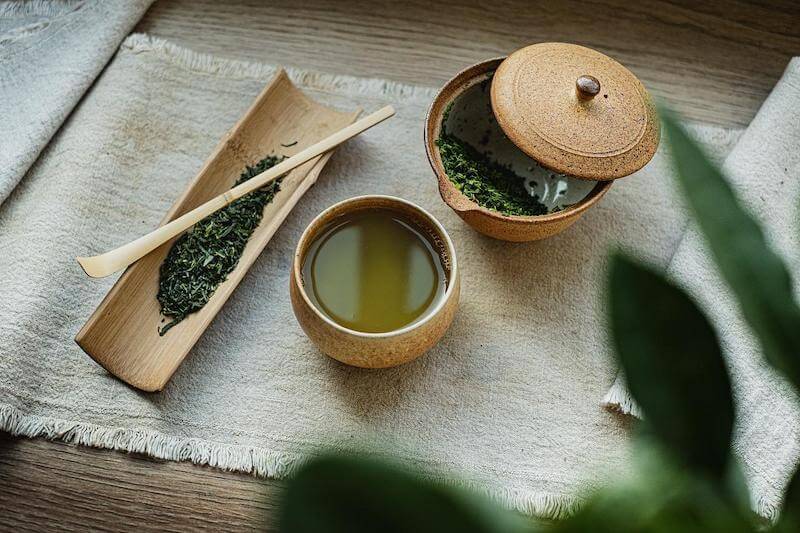
Green tea contains L-theanine, a natural amino acid that has been shown to promote relaxation and reduce stress levels. Studies have also found that regular consumption of green tea may decrease symptoms of anxiety and depression, possibly due to its antioxidant and anti-inflammatory properties.
So, next time you’re feeling stressed or overwhelmed, consider swapping out your regular tea for a relaxing and soothing cup of decaf green tea. Your mind (and body) will thank you.
Here’s the one I enjoy on a regular basis:
DoMatcha, Master’s Decaf Matcha Powder
- Authentic Japanese Green Tea
- Ceremonial Grade
- 30g
iDeals finder talks about the amazing benefits of decaffeinated green tea in a 4 minute video:
Green Tea and Heart Health Benefits
Green tea has long been touted for its numerous health benefits, and one area where it really shines is heart health.
As a rich source of antioxidants, green tea has been shown to help reduce the risk of heart disease by preventing damage to the arteries and promoting healthy blood flow.

Additionally, some studies have linked regular green tea consumption with a decrease in cholesterol levels, another important factor in maintaining good cardiovascular health.
Green Tea and Cognitive Benefits
Green tea is not only a refreshing beverage but also has numerous health benefits, including cognitive benefits. According to recent studies, drinking green tea regularly has been linked to:
- improved memory
- better attention and focus attention
- improved overall cognitive functions.
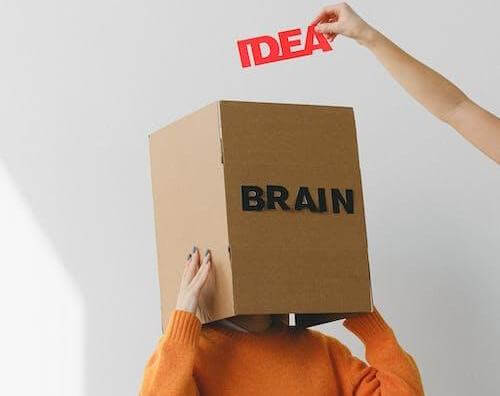
Green tea contains L-theanine, which works to improve brain function. L-theanine promotes a calm mind and reduces anxiety, which keeps the brain sharp and focused on the tasks at hand.
Additionally, green tea is rich in antioxidants that protect brain cells from damage and prevent cognitive decline with age.
Decaf green tea provides higher levels of catechins
Studies have revealed that while both caffeinated and decaf green teas contain catechins, decaf green tea has higher levels of these compounds.
One study published in the Journal of Food Science found that decaf green tea contained up to three times as many catechins as regular green tea.
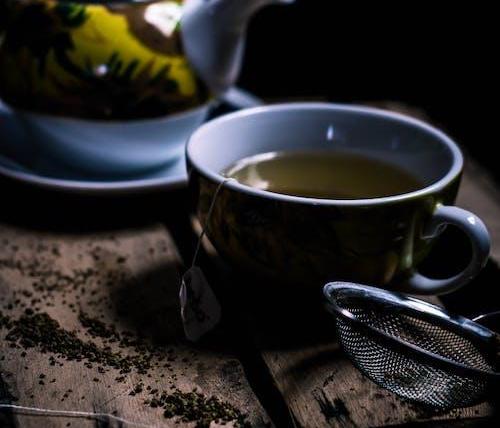
This is likely due to the fact that caffeine binds to catechins in the tea, making them less available to the body.
What are catechins?
Catechins are a type of flavonoid, which is a naturally occurring plant compound with antioxidant properties. In green tea, catechins are the primary type of polyphenol.
They are responsible for many of the health benefits associated with green tea, including its potential as an antioxidant, anti-inflammatory agent, and metabolism booster.
Caffeine Addiction and Dependence
For many people, their day doesn’t really start until they’ve had their first cup of coffee or tea. It’s a ritual that is practically ingrained in our culture.
There is a coffee shop seemingly at every corner, ready to imbibe you with caffeine at any given moment, possibly subconsciously programming the population to think that they must have caffeine to function properly. Is this a healthy mindset?

The problem arises when that one cup quickly turns into several, and before you know it, your caffeine intake has skyrocketed.
Caffeine addiction and dependence is a very real issue that affects millions of people around the world, and while it may not be as dangerous as alcohol or drugs, it can still have serious negative consequences on your health and overall well-being.
It is important to be aware of the signs of caffeine addiction and take steps to break the cycle before it becomes a problem.
Caffeine Withdrawal Symptoms
Caffeine has become an integral part of many people’s daily routines. It’s the substance that gives you the energy you need to face the day, whether through coffee, tea, or energy drinks.
But what happens when you suddenly stop consuming caffeine? Caffeine withdrawal symptoms can occur and they vary from person to person.
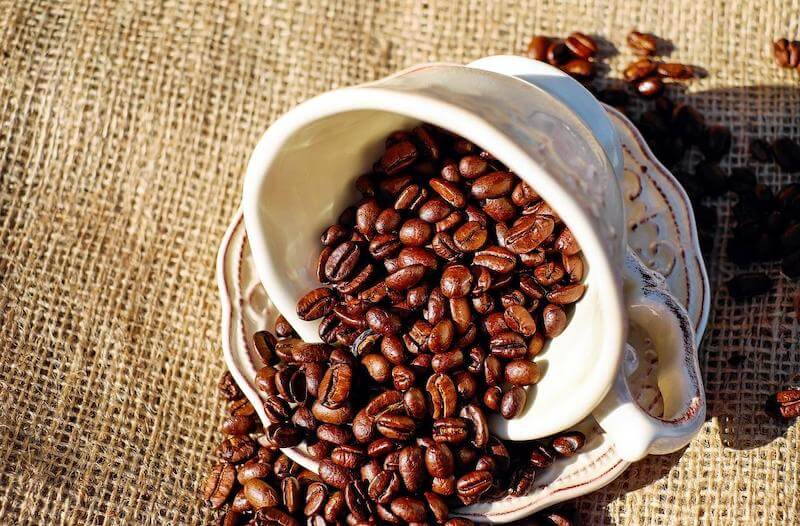
Common symptoms include:
- Headaches
- Fatigue
- Irritability
- Difficulty concentrating
- Even flu-like symptoms
Withdrawing from caffeine can be challenging, but knowing what to expect can help you prepare and minimize the effects. It’s important to remember that caffeine withdrawal symptoms are temporary and can be managed with self-care and patience.
Caffeine May Increase Anxiety Levels
Caffeine is a widely consumed substance that can be found in various food and drink products, such as tea, coffee, and chocolate. While it can provide a quick boost of energy and mental alertness, it’s also been linked to increasing anxiety levels in some individuals.
Despite its popularity, it’s important for people to be aware of the potential negative effects that caffeine can have on their mental health, especially if they already struggle with anxiety.
While cutting out caffeine altogether may not be necessary for everyone, it’s worth considering the impact it may be having on your overall well-being.
Concluding thoughts on going decaf with your green tea
In conclusion, green tea is a healthful beverage that can provide numerous benefits. Not only can it improve mental and heart health but it can help to enhance cognitive ability also.
Everyone should consider using mindful techniques when consuming caffeine-containing drinks as there are some downsides. Addiction and dependency in extreme cases can be a major issue.
Moreover, if you ever decide to cut back or stop drinking caffeine-containing beverages altogether, there could be consequences such as physical and psychological withdrawal symptoms. Despite these effects, the overall health benefits of green tea make it worthwhile for people to consume in moderation while keeping the potential risks associated with high levels of caffeine consumption in mind.
Sources and additional reading on green tea and caffeine
- “Green Tea Consumption and Risk of Cardiovascular Disease: A Meta-Analysis of 13 Randomized Controlled Trials”: https://www.ncbi.nlm.nih.gov/pmc/articles/PMC3679539/
- “Green Tea, Caffeine, and Risk of Depression in a Japanese Elderly Population”: https://www.ncbi.nlm.nih.gov/pubmed/26781193
- “Green Tea and Cognitive Function: A Review of Human Intervention Studies”: https://www.ncbi.nlm.nih.gov/pmc/articles/PMC2855614/
- “Caffeine Withdrawal”: https://www.apa.org/gradpsych/2013/01/withdrawal.aspx
- “Caffeine Intake and Anxiety: A Systematic Review”: https://www.ncbi.nlm.nih.gov/pmc/articles/PMC4263906/
The links used on thewellthieone.com are affiliate links, which may provide a small commission. This does not increase the price of the goods for the consumer whatsoever. What it does is ensure that useful content like this can continue to be produced. Thank-you for enjoying our content and allowing us to continue to provide more.


